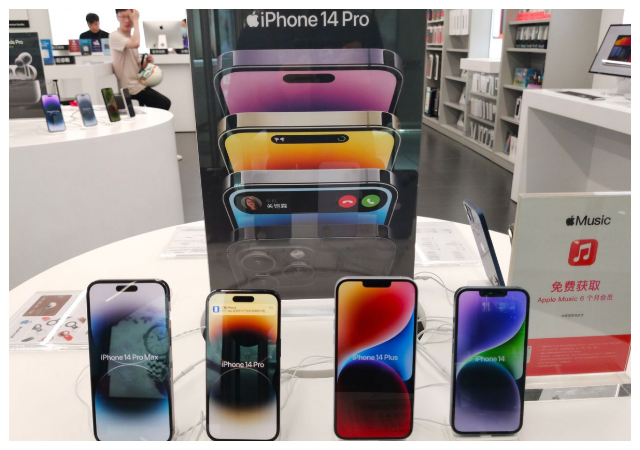
The Wall Street Journal reported on Thursday that Beijing had ordered central government officials not to use Apple devices.
Bloomberg reported on Friday that the ban would be extended to a wide range of government-controlled organizations and that it also applied to state companies and agencies that were backed by the government.
The latest shot in Washington and Beijing’s ongoing trade and technology war comes from China, whose actions have not been made public through official channels.
Why is the iPhone being banned now?
The bans have not completely surprised China watchers, despite being bad news for Apple and possibly a bad omen for all Western tech companies.
As the two countries increasingly place alleged national security concerns above trade and investment, the United States and China have taken steps to lessen their economic dependence on one another.
Beijing has intensified efforts to lessen its reliance on foreign technology and support domestic businesses, including Huawei, a company with headquarters in Shenzhen, whose new $1,200 Mate 60 Pro smartphone has been praised by tech analysts for rivaling the iPhone.
The recent release of the Mate 60 Pro, according to Bank of America, makes the timing of the iPhone ban “interesting.”
Limiting personal use of iPhones, which can connect to local networks and gather environmental data, is in line with the government’s commitment to enhancing cybersecurity, according to Chim Lee, a China analyst with the Economist Intelligence Unit, who spoke to Al Jazeera.
Since at least 2016, China has attempted to close cybersecurity gaps with new laws and regulations, but Lee said that up until recently, technological constraints had hampered its efforts.
“Recent technological advancements may have given the government some confidence to proceed with these [cybersecurity] measures,” he said.
The tech firms of China and the US are seen as potential security risks by both countries because they might give people backdoor access to confidential information and government infrastructure.
Due to concerns about data privacy, Montana became the first US state to outlaw Chinese-owned TikTok in May. A number of other states are considering taking a similar action.
The app is already prohibited on phones issued by US federal agencies and numerous state governments.
Washington has also prohibited US companies from doing business with a number of Chinese tech companies, including Huawei, and limited US chipmakers’ ability to sell China’s cutting-edge technology.
The release of the Mate 60 Pro, which uses the cutting-edge Kirin 9000s processor, has made people wonder how effective these export restrictions really are.
In order to determine whether the law had been broken, the administration of President Joe Biden was looking for more information about the “character and composition” of the smartphone, according to US National Security Advisor Jake Sullivan, who made the statement last week.
The iPhone ban: What does it mean for Apple and other Western tech companies?
The value of the most valuable company in the world lost nearly $200 billion as a result of Apple’s stock price declining by almost 6% between Wednesday and Friday’s close.
The ban has also caused Western businesses doing business in China to pause and consider whether foreign businesses are really welcome in the second-largest economy in the world.
Even though some Chinese officials claim that the country is once again open for business following the worst of the COVID-19 pandemic, police raids on foreign businesses, such as the Mintz Group, and recently passed anti-espionage laws have highlighted how challenging it is to conduct business and obtain information.
Along with a number of other difficulties that foreign businesses face, such as the effects of the pandemic, intellectual property theft, government favoritism of domestic rivals, and regulatory concerns, the security environment is becoming more tense.
Given that the California-based tech giant had, up until recently, a reasonably positive relationship with Beijing, the most recent restrictions on Apple may increase concerns about conducting business there.
Apple has historically been happy to comply with Beijing’s demands for control, such as by removing virtual private networks, or VPNs, from its Chinese iOS store to prevent users from avoiding internet censorship. Apple generates about 20% of its global sales in China.
Tim Cook, the CEO of Apple, met with Li Qiang, the premier of China, in Beijing as recently as March.
The belief that Apple can navigate US-China tensions to avoid any material fallout may be misplaced more and more, according to Bill Bishop, editor of the well-known newsletter Sinocism, who made the following statement on Friday. “.



















